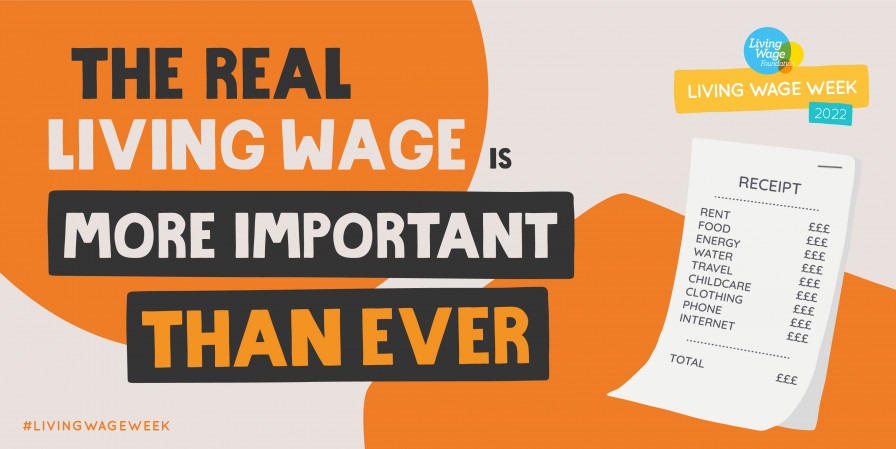Living Wage Week - Join the movement which pays people equitably

Living Wage
With the cost of living rising, earning a real Living Wage is more important than ever. Youth Music is a Living Wage Funder because we're a charity that exists to support young people. And in order to do that, we believe it's essential to support the wellbeing and sustainability of our funded partners.
What is the real Living Wage?
The real Living Wage (not to be confused with the Government’s similarly-named ‘Living Wage’) is a UK wage rate based on living costs. It’s increased recently to £10.90 per hour, rising to £11.95 per hour in London. It applies to all workers over 18 - recognising that young people have the same living costs as everyone else. The Government living wage rate is £9.50 per hour only for those over 23, falling as low as £6.83 for 18-20 year olds. The real Living Wage, on the other hand, is the only UK wage rate which meets everyday basic needs. This is especially important with everyone facing tax rises, rent increases, cuts to universal credit, and rising energy bills.
What can you do to help?
- We expect all people employed on Youth Music-funded programmes to be paid the real Living Wage. As well as being a Living Wage Funder, we’re also an accredited Living Wage Employer, part of a movement of over 11,000 employers who commit to paying our staff and contractors the real Living Wage. We want to encourage all funded partners to become accredited who are able to so, so that they can fully support their workforce, especially with the full effects of the cost of living crisis looming.
- Paying people the real Living Wage (or a higher rate, especially if they are freelance) is an important and fair step. It's worth considering a real living wage is not a real living wage if you’re only working 2 hours per week. If you employ people part time or engage freelancers, review the Living Hours scheme and see how you can meet the standard. If this is not practically possible, then speak to your freelance workforce about how you can make it easier for them to engage in multiple contracts.
- Speak to your funders about what flexibility exists within your grant budget in order to accommodate pay increases.
- Sign up as an accredited Living Wage employer and join the wider fair pay movement.



